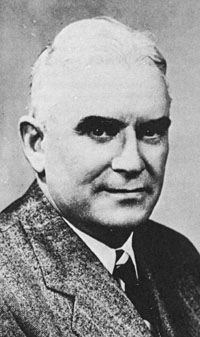
The 22nd Legislative Assembly of British Columbia sat from 1950 to 1952. The members were elected in the British Columbia general election held in June 1949. [1] From 1950 to 1952, the Liberals and Conservatives formed a coalition government led by Byron Ingemar "Boss" Johnson, [2] and the Co-operative Commonwealth Federation led by Harold Winch formed the Official Opposition. [3] On January 19, 1952, the coalition split and the Liberals formed a single-party minority government, while the Conservatives moved to the opposition benches and took the role of Official Opposition.
Contents
Nancy Hodges served as Speaker of the Legislative Assembly. [4]
